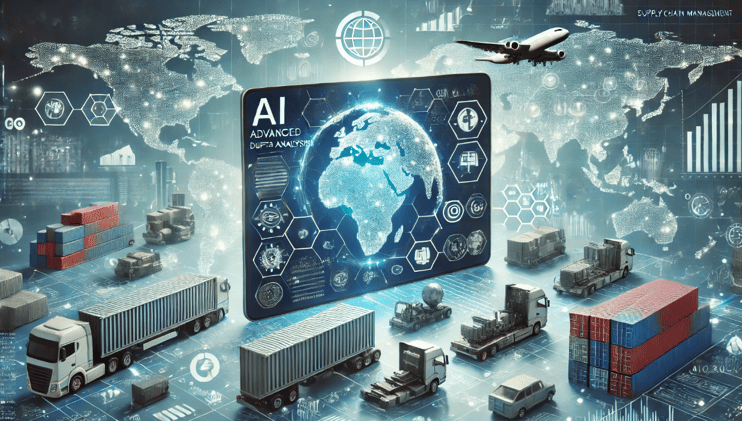Artificial Intelligence Revolutionizes Global Supply Chain Management with Robotic Process Automation
RobobAI, a global FinTech leader, is revolutionizing how organizations manage their supply chains by leveraging artificial intelligence (AI) technology. This innovative approach to spend analysis and procurement optimization is gaining traction among large enterprises aiming to boost efficiency and cut costs in today’s complex global market.
AI-Driven Spend Analysis
Nitin Upadhyay, Chief Data and Innovation Officer at RobobAI, highlights the core challenge the company addresses: providing comprehensive visibility into spend data. "By harnessing AI, RobobAI can rapidly consolidate, classify, and categorize vast amounts of spend data, offering insights that were previously difficult or impossible to obtain through traditional methods," he explains.
Traditional methods for managing supply chains often rely on manual processes, which are time-consuming, prone to errors, and limited in their ability to provide actionable insights. AI-driven spend analysis, on the other hand, enables organizations to gain a deeper understanding of their spending habits, identify areas for improvement, and make data-driven decisions.
Significant Savings and Optimization
RobobAI’s platform has shown substantial results. Companies spending $1 billion annually on goods and services can save $6-8 million yearly by leveraging insights from the platform. These savings come from:
- Operations optimization: By streamlining processes, reducing waste, and improving efficiency, organizations can cut costs without compromising quality.
- Payment restructuring: AI-driven spend analysis helps identify opportunities to renegotiate contracts, reduce fees, and optimize payment terms.
- Contract expansion opportunities: By identifying potential contract expansion opportunities with existing suppliers, companies can increase revenue and build stronger relationships.
Real-world examples of RobobAI’s impact include:
- A client reduced purchase orders by 52%, leading to significant cost savings.
- Another transitioned 33% of suppliers to commercial card transactions, simplifying payments and improving cash flow.
- A client identified $98 million in contract opportunities from smaller, often overlooked vendors.
Addressing Data Challenges
Despite its success, RobobAI faces challenges in data wrangling—cleaning, structuring, and enriching raw data. "AI can struggle with inconsistent, incomplete, or inaccurate data," Upadhyay notes. The company has invested heavily in scalable infrastructure and advanced AI techniques, such as natural language processing and computer vision, to handle unstructured data like text and images.
Adapting to Global Trends
Geopolitical tensions and climate change are reshaping supply chains. Companies increasingly rely on AI for better forecasting and risk management. AI’s ability to process vast data and identify patterns is crucial for predicting disruptions and optimizing operations in real time.
In response, RobobAI is developing more specialized AI models tailored to specific markets, enhancing adoption rates. This includes initiatives such as:
- Democratizing AI capabilities: By offering direct access to its models, RobobAI aims to lower the entry barrier for smaller organizations and niche industries.
- Market-specific AI models: Upadhyay predicts that more specialized AI models will be developed to address specific market needs, further expanding the reach of AI-driven supply chain solutions.
Impact on Workforce
AI adoption at RobobAI has spurred growth and new opportunities for employees. "Employee sentiment is boosted by the new initiatives that we are developing, giving staff the ability to learn new techniques," says Upadhyay.
As organizations continue to navigate the complexities of global supply chains, they must prioritize adopting innovative technologies like AI-driven spend analysis. By leveraging these tools, companies can gain a competitive edge, drive growth, and improve their bottom line.
Conclusion
RobobAI continues to lead in AI-driven supply chain management, helping organizations navigate complex challenges and achieve significant operational improvements. With its cutting-edge technology and commitment to innovation, RobobAI is poised to revolutionize the way businesses manage their supply chains, transforming the industry forever.









